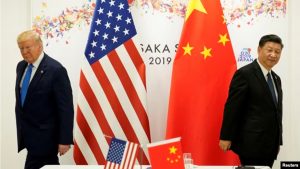
Taiwan High Court Sentences Eight Military Officers for Spying for China in Landmark Case

On Thursday, the Taiwan High Court sentenced eight Taiwanese military officers to prison for espionage, marking one of the most significant espionage cases in the island’s recent history. The officers were found guilty of spying for China in exchange for financial rewards, with sentences ranging from 18 months to 13 years.
The court’s statement highlighted that the defendants were “willing to collect intelligence for China that caused the leak of important secrets,” and that they were “seduced by money.” This case underscores a shift in China’s espionage tactics in Taiwan, with younger military personnel being targeted and motivated primarily by financial gain.
The individual behind the recruitment, Chen Yuxin, reportedly contacted and recruited the officers at key military sites, forming a spy network for China. Chen is believed to have fled to China and remains there.
Among the alarming allegations, the defendants were accused of planning to fly a CH-47 Chinook military helicopter to a Chinese aircraft carrier in the Taiwan Strait and recording a video indicating their willingness to surrender to Beijing in the event of war. Payments to the defendants were allegedly made via virtual currency.
Timothy Heath, a senior international defense researcher with the RAND Corporation, emphasized the potential severity of the impact had the espionage and defection not been thwarted. He also noted the demoralizing effect of soldiers voluntarily making videos expressing their readiness to surrender to China.
This case is part of a broader trend, with an increasing number of espionage cases in Taiwan linked to Chinese intelligence. Russell Hsiao, executive director of the Global Taiwan Institute, pointed out that this case reflects a shift in Chinese intelligence tactics, with younger individuals being targeted compared to previous cases that often involved older military retirees driven by ideology and financial gain.
The sentencing is seen as a deterrent, with the court issuing more severe punishments despite the relatively limited value of the intelligence passed on by these agents.
China, which claims Taiwan as its territory, has intensified its military and political pressure on the island in recent years, and espionage between the two sides has been ongoing for decades. Taiwan’s Control Yuan, the government’s oversight branch, confirmed that espionage-related cases have surged, with 40 cases uncovered between 2011 and 2023, involving 113 military and civilian personnel.
Zack Cooper, a senior fellow at the American Enterprise Institute, noted that these cases demonstrate Beijing’s intent to infiltrate Taiwan’s military and security services, emphasizing the need for vigilance in the years ahead.
In response to the growing threat, Taiwan’s Cabinet announced a 7.7% increase in defense spending for 2025, bringing the budget to $20.25 billion. The Control Yuan also urged the government to further boost its defense budget to counter China’s espionage activities, highlighting the ongoing challenges Taiwan faces in safeguarding its security and sovereignty.












Comments